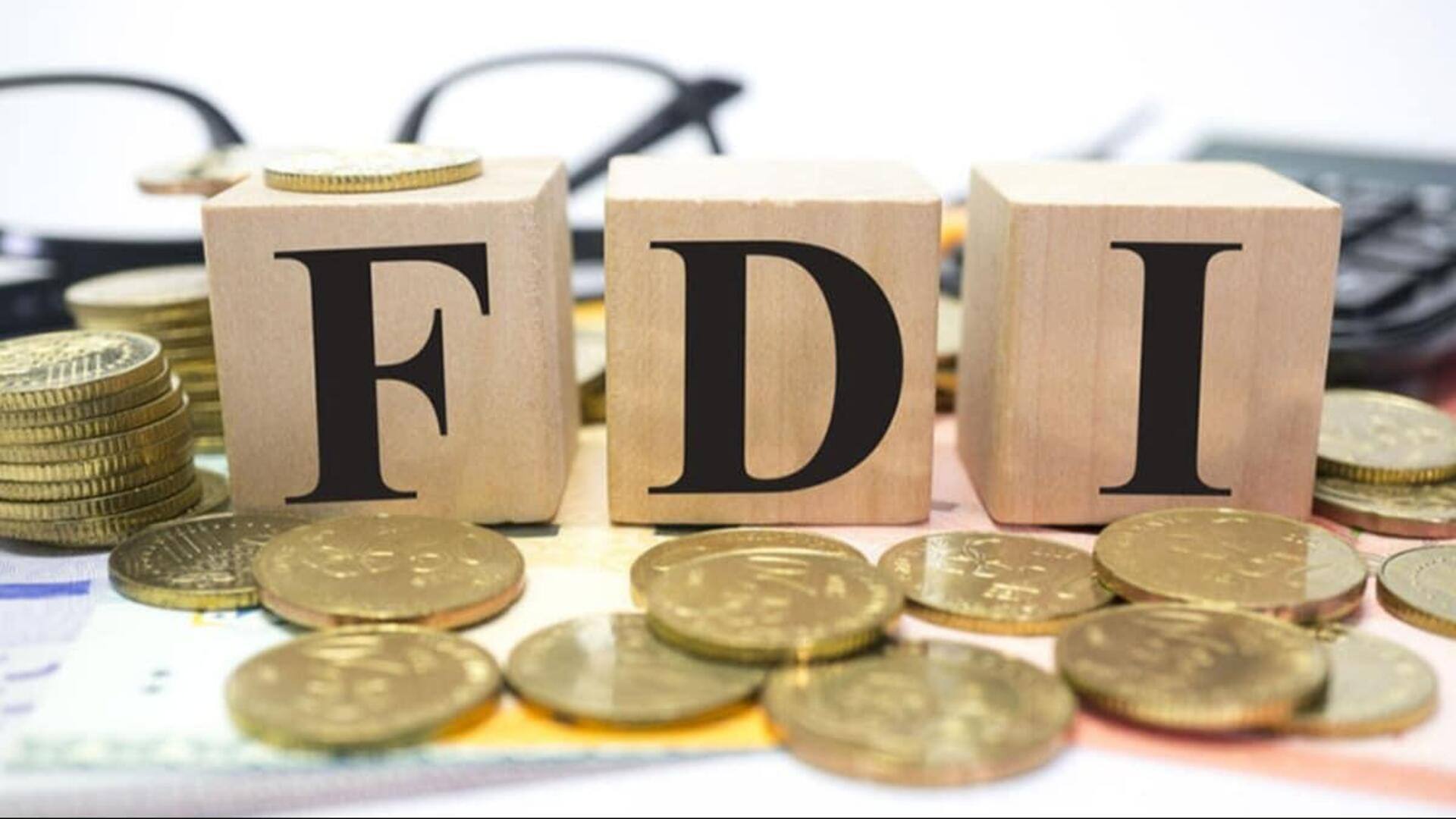
India aims for $100 billion FDI annually, courts Chinese investors
What's the story
India is setting its sights high, aiming to attract a minimum of $100 billion in gross foreign direct investment (FDI) annually.
This ambitious target was revealed by Rajesh Kumar Singh, secretary in the Department for Promotion of Industry and Internal Trade.
The goal represents a significant increase from the yearly average of over $70 billion in FDI recorded over the past five years through March 2023.
Investment confidence
Confidence in achieving FDI target amid geopolitical uncertainties
Singh expressed confidence in achieving this ambitious FDI target, indicating that this fiscal year's figure will be "closer to" the $100 billion threshold.
He attributes this positive trajectory to India's appeal as a diversification choice for companies seeking to safeguard against geopolitical uncertainties.
This strategy is often referred to as the "China plus one" tactic, which has already attracted tech giants like Apple and Samsung.
Apple has emerged as India's biggest blue-collar job creator.
Investment landscape
Challenges and opportunities in India's FDI landscape
Despite the increase in local manufacturing, foreign investment has not kept pace.
Singh attributes this discrepancy to factors such as higher inflation and interest rates in developed nations, geopolitical disputes, and risk perception about emerging markets.
However, he highlighted India's "unmatched market growth opportunity" in sectors like electric vehicles, electronic goods, and general consumer goods where market penetration is significantly lower than the global average.
Regulatory changes
Government's role in simplifying FDI regulations
Singh confirmed that the government is committed to further simplifying FDI regulations.
This commitment aligns with Prime Minister Narendra Modi's key pledge of boosting manufacturing's contribution to India's economy as he campaigns for a third term in elections which start on April 19.
The government's production-linked incentive program has already facilitated an increase in manufacturing and reduced reliance on imports for items like telecommunications and auto components.
Future initiatives
Future plans to boost India's manufacturing sector
Singh revealed plans for several new industrial corridors expected to receive approval within the first 100 days of a new administration.
He acknowledged slow progress in the steel and textile sectors under the incentive scheme and shared plans to expand the list of items included under it.
The government is also addressing delays in issuing visas to Chinese professionals needed for machinery installation, with Singh proposing short-term visas for Chinese technicians to strengthen India's manufacturing sector.